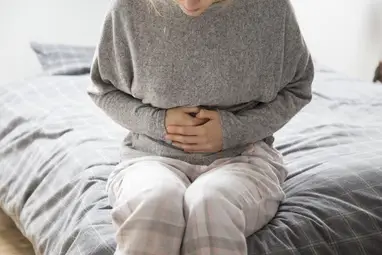
How to cope with menopausal changes
Feeling irritated and frustrated without any reason? And experiencing sweating even in an air conditioned room? These might be the signs of menopause. Menopause is a sign of ageing, that occurs in every women’s life around the age of 50. It can throw a woman on an emotional roller-coaster ride. If you have not got your periods for more than 12 months it might be menopause. In menopause, the levels of estrogen drops and one can experience emotional changes like feeling of sadness, irritability, anxiety, lack of motivation, fatigue, mood swings, tension or stress, etc. It can also increase the risk of diseases like osteoporosis, heart diseases, weight gain, diabetes, etc. The good news is, all of these symptoms and diseases can be managed with some easy to adapt lifestyle changes. So, let’s understand about all the changes in detail.
Exercise

Exercise to balance hormones.
Exercise offers many health benefits. It can help boost mood, improve sleep and help deal with stress and depression too. Exercise can give a sense of well-being. It can also make you feel more relaxed and positive about yourself and life in general too. To deal with the emotional issues of menopause, and improve your mood, energy, and outlook, try to exercise for at least 30 minutes every day.
Vitamin D and Calcium

Vitamin D and calcium rich foods.
Hormonal changes during menopause can lead to weak bones therefore, food rich in vitamin D and calcium is must in your diet. Load up on milk and milk products, soy, fish, chicken, green leafy vegetables and improve your bone density.
Eat healthy

Healthy food and emotional well being.
The food you eat can have a big impact on your mood. Nutrition can play a big role in a person’s well-being, and it directly affects emotional well being too. The gastrointestinal tract has often been called the “second brain”. It contains numerous bacteria that have a role in the production of neurotransmitters like serotonin and dopamine that carry messages from the gut to the brain. Eating food items rich in probiotics will promote the growth of good bacteria which will positively affect the production of neurotransmitters. Also, try to include foods rich in high protein like legumes and dairy products, fruits and vegetables, whole grains, and healthy fats.
Manage weight

Manage weight to balance hormones.
Change in hormones can make you gain body weight especially around your waist. According to studies, losing even 5-7% of body weight can help in relieving signs of menopause. Hence, to lose weight, eat healthy diet, workout regularly and have a sound sleep for 6-7 hours daily.
Add soy

Soy relieves hot flashes.
To manage the signs of menopause do not forget to add soy in your diet. Soy being rich in phytoestrogen imitates the function of estrogen in body and reduces the occurrence of menopausal symptoms.
Say no to processed food

Avoid processed food.
Last but not the least, try to avoid processed and refined food as much as you can. Packaged food being rich in sodium, sugars and taste enhancers can lead to binge eating, weight gain, mood swings and hot flashes. So, say no to processed food with a big smile and get rid of all the signs of menopause.
It is possible to survive and even thrive during menopause. Make sure to follow all the tips mentioned and take good care of your health. Also, do not hesitate to reach out to your doctor in case of severe symptoms.
Similar Articles









